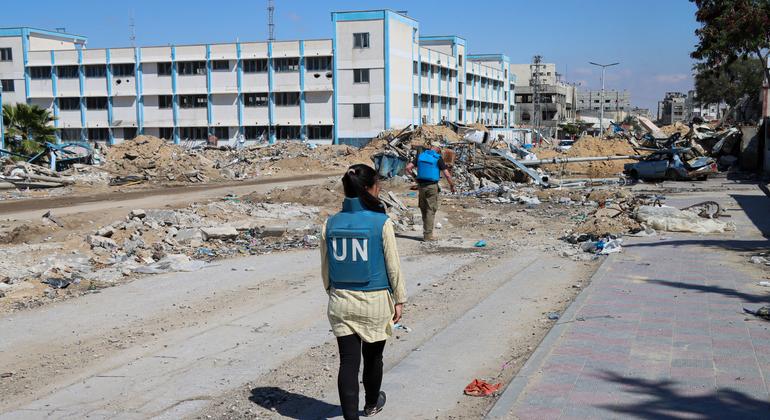Jamie McGoldrick, the UN Humanitarian Coordinator overseeing crisis relief in Gaza, has raised concerns about the difficulties faced in delivering aid to the region. He pushed back at Israeli claims that over 1,000 trucks had entered Gaza but only around 800 had been collected on the Palestinian side. He highlighted that the deconfliction system, which involves sharing coordinates with the warring sides, was consistently inaccurate. McGoldrick emphasized the importance of aid reaching civilians in Gaza and urged Israeli authorities to recognize their responsibility as the occupying power.
Delays at checkpoints and a “security vacuum” in Gaza have hindered the delivery of aid where it is most needed. McGoldrick pointed out that a UNICEF team’s vehicle was hit by live ammunition after being held for hours at a checkpoint on Salah Al Deen road. He cited wasted hours due to delays at checkpoints and the cancellation of missions to the north of Gaza when it becomes too late in the day to travel. The limited number of roads open for humanitarian relief in Gaza, coupled with their poor condition, have further complicated aid delivery efforts.
According to McGoldrick, the consequences of limited aid missions to the north of the enclave are evident in the health of the population, particularly in underweight babies at birth. During a visit to Kamal Adwan hospital, he witnessed every patient in the children’s ward facing life-threatening hunger. He highlighted the case of a two-day-old boy, born at full term but weighing only 1.2 kilos, which could have long-term developmental consequences. These challenges underscore the urgent need for improved access to aid and resources in Gaza to address the humanitarian crisis.
The UN aid coordinator emphasized that only three roads are currently open for humanitarian relief in Gaza: Salah Al Deen road, Al Rashid road, and the military road on the east side. However, these roads have not been operational simultaneously in over a month, further complicating aid delivery efforts. McGoldrick stressed the importance of addressing these logistical challenges to ensure that aid reaches those in need in a timely manner.
In light of these operational issues, McGoldrick has engaged with the Israeli military to raise concerns and seek solutions. He highlighted the need for improved coordination and cooperation to facilitate the delivery of aid to Gaza. McGoldrick’s efforts reflect the ongoing challenges faced by humanitarian organizations in providing assistance to vulnerable populations in conflict-affected areas.Addressing these challenges requires a collective effort from all parties involved to ensure that aid reaches those most in need in Gaza.









